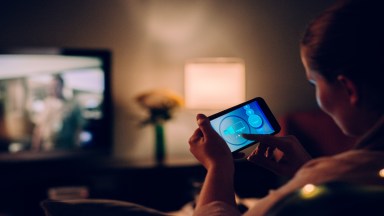When you do a search for top influencers, chances are the usual suspects will come up first: people in movies and music. This month, many brands are celebrating women, with many embracing the #breakingthebias theme of International Women’s Day. With the ongoing fight for women’s rights globally, brands can amplify the effectiveness of their efforts by working with the top women influencers in the world of sports and gaming, two traditionally male-dominated areas.
In sports, gender equity has some way to go, but fans are helping drive change. According to our 2021 Trust in Advertising study, over half of global audiences trust influencer marketing, but 66% trust brand sponsorships in the sporting events that they watch. In fact, 61% of fans in the U.S. specifically name gender equality as the cause they are most passionate about. For brands that want to show that they are being inclusive, aligning their events and influencer marketing is a great way to engage sports fans.
Last year, female athletes made headlines for championing change during the Olympics when they took a knee in support of racial equity, and again this year when the U.S. Women’s National Soccer Team successfully won their fight for fair pay. Their performance, fanbase and advocacy make these athletes a great choice for brands that want to show their commitment to being more inclusive. For example, as brands look to connect with youth, it’s important that they understand that mental health is one of the most difficult issues that the youth are facing today. One way to create a more authentic connection is to work with a top athlete influencer like Simone Biles, who has been vocal about her own mental health journey.
In addition, female athletes have global appeal. Naomi Osaka is one of the top 10 female athlete influencers. She was the first Asian athlete to reach the No. 1 ranking in singles for tennis and the highest-earning female athlete in the World. While she plays for Japan, over 40% of Osaka’s fanbase is in the U.S.
With the rise in popularity of gaming and esports in recent years, professional players are increasingly building loyal fanbases and have expanded their influence in popular media, business and advocacy. That influence is so great, that the top 10 most influential women gamers have an engagement rate1 of 11.7%, according to Nielsen InfluenceScope, almost three times more than other influencers with similar follower numbers.
That level of engagement is a big accomplishment, in the light of the discrimination women face in the online gaming world. In a recent female gamer survey, both men and women indicated experiencing abuse, but female gamers are more likely to experience sexual harassment and being excluded from the game. Even Pokimane, who is the top most influential2 female gamer, according to Nielsen InfluenceScope, recently chose to end her stream abruptly after another streamer started a hate raid against her.
With a tremendous opportunity to join the fight against the discrimination against women in gaming, brands can look to working with the most influential female gamers who are speaking up against the sexism and holding their own in the gaming community. Valkyrae, who is the second-most influential female gamer, according to Nielsen InfluenceScope, has an even higher engagement rate of 16%. She has been particularly outspoken about encouraging young women to continue to play for the love of the game. As co-owner of esports teams and business 100 Thieves, recently valued at $460 million, she has also led by example and inspired her followers. In 2021, women accounted for nearly 46% of all gamers in the U.S. In Asia, women now make up 40%-45% of the Asian gaming population. Working with female influencers is a winning move for brands looking to create an authentic connection with their consumers.
Notes
1Engagement rate reflects the amount of interactions an influencer’s social media content earns divided by the influencer’s number of followers. 2Nielsen applied its InfluenceScope 4R (reach, relevance, resonance, rising) methodology to more than 100 million social media profiles worldwide to identify the top women influencers in acting, athletics and gaming.



